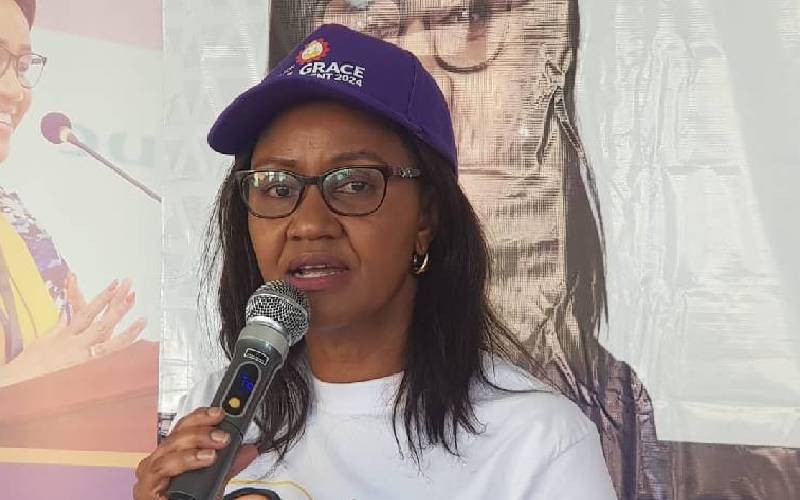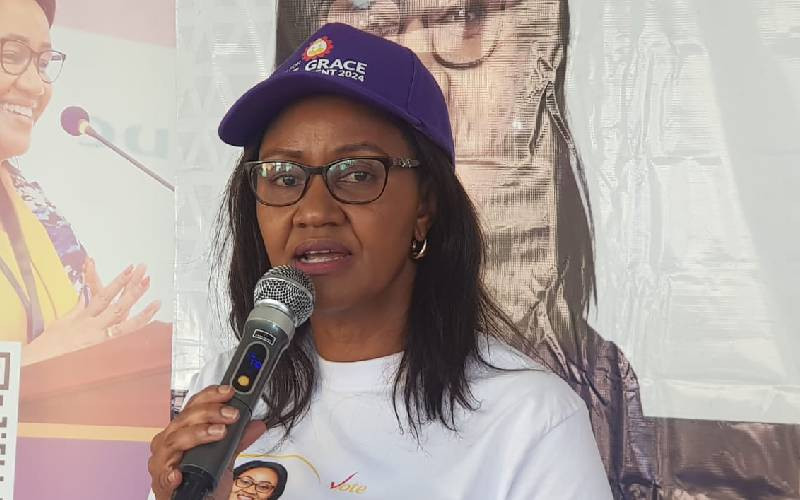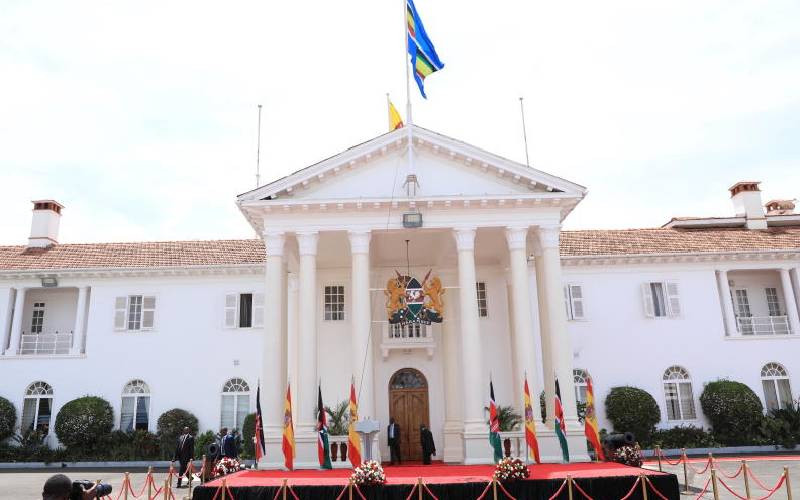Let me confess: the idea I want to pursue today is not entirely mine. Prof Henry Indagasi of the University of Nairobi drew my attention to it and I liked it. I mentioned it to a few colleagues in Parliament as we were working out in the gym: they thought it was spot on. If I remember well former Vice President Kalonzo Musyoka also spoke about it in Kitui at a function which was well attended: but the media did not pursue it further.
Last night somebody called me saying he has a brilliant idea to stop elections from being divisive and enhance national cohesion in Kenya: I didn’t tell him his revelation was really no news to me. All these voices concur on one thing: our presidents should serve for only one term and the position should rotate among the Kenyan regions. I have been challenged to propose how this can be done. Here is my proposal.
I lived with my family in Mexico in the early 80s. That is when Amondi was born, and we named her Lupita in keeping with Luo custom. A child is named after a dead person— as I was—or some event like a famine or a place where the mother finds herself giving birth, or in respect of a hero or a famous person.
In Mexico, however, though they had a ruling party that had been in power for several decades, the presidency changed every six years as provided for in the Constitution and there was a plurality of political parties competing for all elected seats from local to national government. Thus there was a tremendous circulation of elites in political power even within the dominant party. The presidency, by tradition and political expediency, rotated to satisfy the various social forces that were the bedrock of the then dominant and ruling party: the Party for the Institutionalised Revolution. Mexican political stability and national cohesion since the 1930s was hinged on this constitutional safeguard against the “pocketing” of presidential powers by one or two closely knit sections of the elite or the middle class.
As the 2013 presidential elections revealed in Kenya, one or two tribal based elites can decide to “pocket” the presidency for long by dint of their so-called “tyranny of numbers”. The numbers can be real, manipulated or even manufactured. All will depend on the integrity of the referee: the electoral commission. The numbers can equally be massaged to produce some pre-set results, as has happened here and elsewhere in Africa. Whether elections are held periodically or not their results, under such circumstances, will always lead to grievances every so often by those aggrieved by the unfairness of the process, if not by the results. Rather than have a healthy circulation of elites in political power, that kind of “manipulated democracy” will simply reproduce the circulation of grievances, much to the detriment of national cohesion, good democratic governance and socio-economic prosperity.
Forming governments through periodic elections in a democratic political culture is based on one major assumption: that any individual or group of people aspiring to form a government or be elected to a position has an equal and fair chance like all the others and that the ground rules shall be obeyed by all contestants. Kenya has over 40 ethnic communities living in specific regions. Within each region ethnic communities share certain common interests. This is why the colonialists divided Kenya into provinces, and broke these further into districts. Apart from abolishing provinces as administrative units, the new political dispensation has not actually done away with the economic, social and cultural sinews that tied the original provinces together after close to 100 years of existence.
To do away with the divisive tyranny of numbers and its potential to institutionalise politics of grievances in our political culture, I want to propose that we go the Mexican way. Our presidents will be elected to serve for a fixed term of six years non-renewable.
Kenya will also be divided into eight presidential electoral regions along the lines of the former provinces. No presidential electoral region shall succeed itself in electing a president.
In other words if Nairobi as an electoral region produces a president in 2017, the election after that will be open only to candidates from the other seven regions.
To take this politics of inclusiveness further, the President will, when forming a cabinet, consider all political parties to be represented in his or her cabinet proportionally to the numbers in Parliament that such parties get. Since government, or the state, is such a critical factor in the process of accumulation during the early stages of capitalist development like ours, it is suicidal to the rest of society for only one or two communities to dominate the state on grounds of a type of democracy that presupposes existence of a political culture which is very alien to us.
Look at what we are going through now with regard to the major infrastructural projects like the Standard Gauge Railway (SGR) and the Coal Power Plant in Lamu. We know the SGR matter is in court due to problems of manipulating the tendering procedure to suit the interests of certain social forces in government. Since that case is in court we shall not comment on it any further than that. But let us take the Lamu Coal Power plant issue.
What is at stake here and why has the tendering procedure been blatantly manipulated to suit the highest bidder? Gulf Energy and its reconstituted consortium were never pre-qualified to submit their Request for Proposal (RFP). Under what law have they won the tender?
In terms of eventually paying for energy consumption when the Lamu Coal Power Plant is operational, are Kenyans better off with Gulf Energy and its consortium implementing this project or could we have had a better deal were the law to be followed to the letter and kickbacks in the high echelons of government kept at bay?
 The Standard Group Plc is a
multi-media organization with investments in media platforms spanning newspaper
print operations, television, radio broadcasting, digital and online services. The
Standard Group is recognized as a leading multi-media house in Kenya with a key
influence in matters of national and international interest.
The Standard Group Plc is a
multi-media organization with investments in media platforms spanning newspaper
print operations, television, radio broadcasting, digital and online services. The
Standard Group is recognized as a leading multi-media house in Kenya with a key
influence in matters of national and international interest.
 The Standard Group Plc is a
multi-media organization with investments in media platforms spanning newspaper
print operations, television, radio broadcasting, digital and online services. The
Standard Group is recognized as a leading multi-media house in Kenya with a key
influence in matters of national and international interest.
The Standard Group Plc is a
multi-media organization with investments in media platforms spanning newspaper
print operations, television, radio broadcasting, digital and online services. The
Standard Group is recognized as a leading multi-media house in Kenya with a key
influence in matters of national and international interest.








